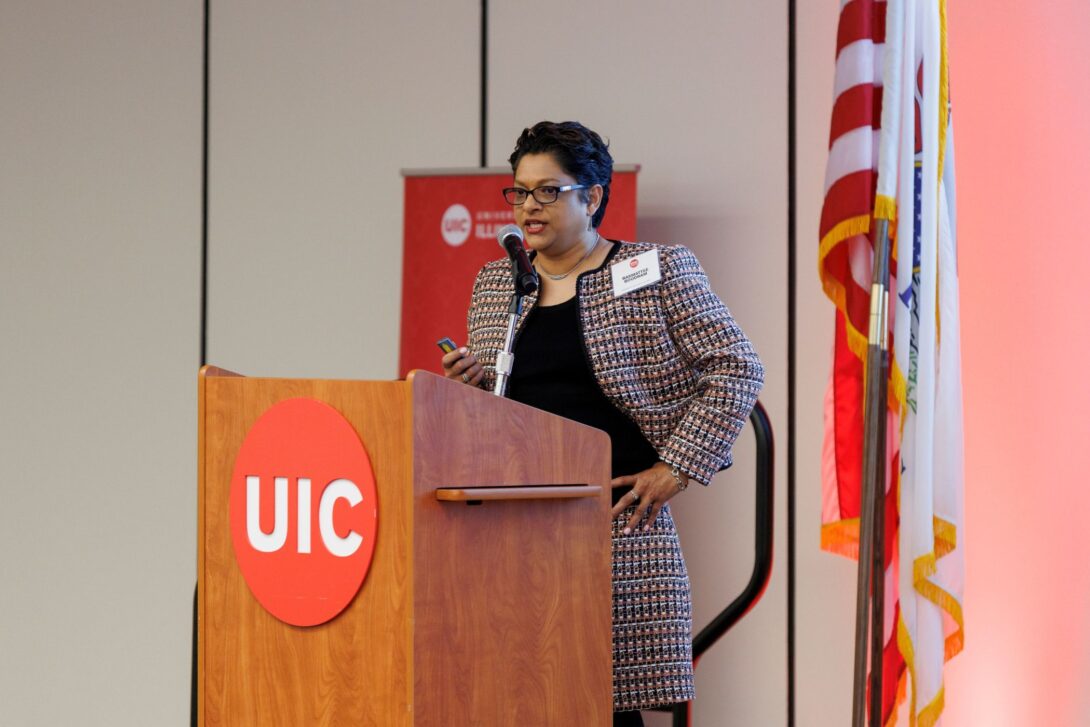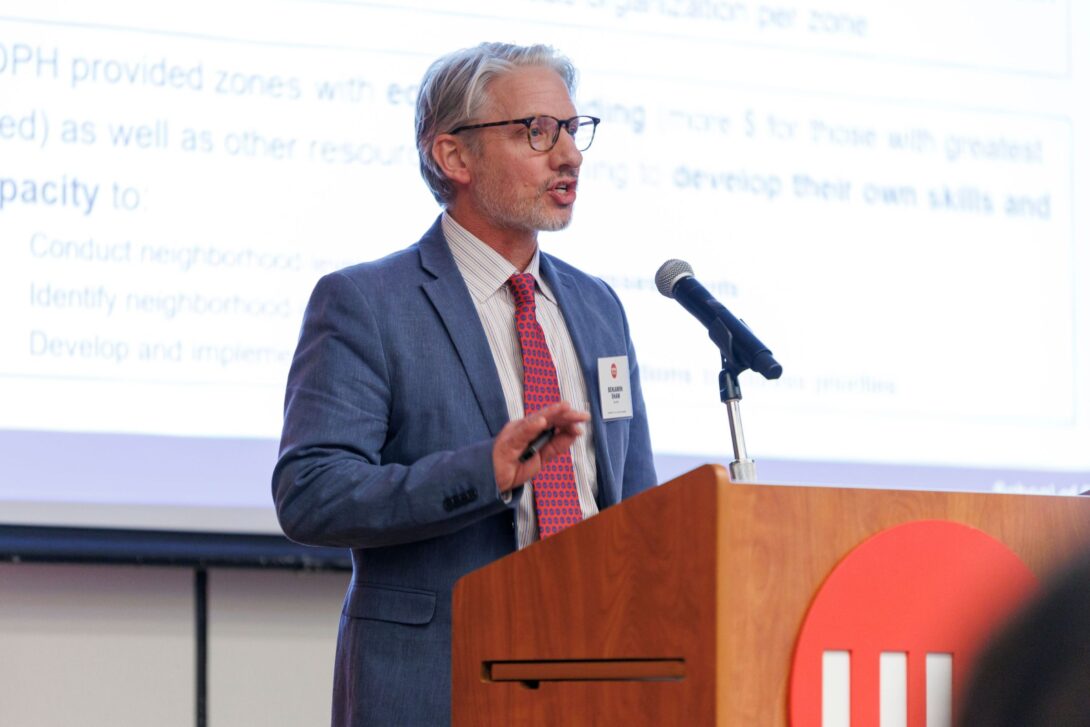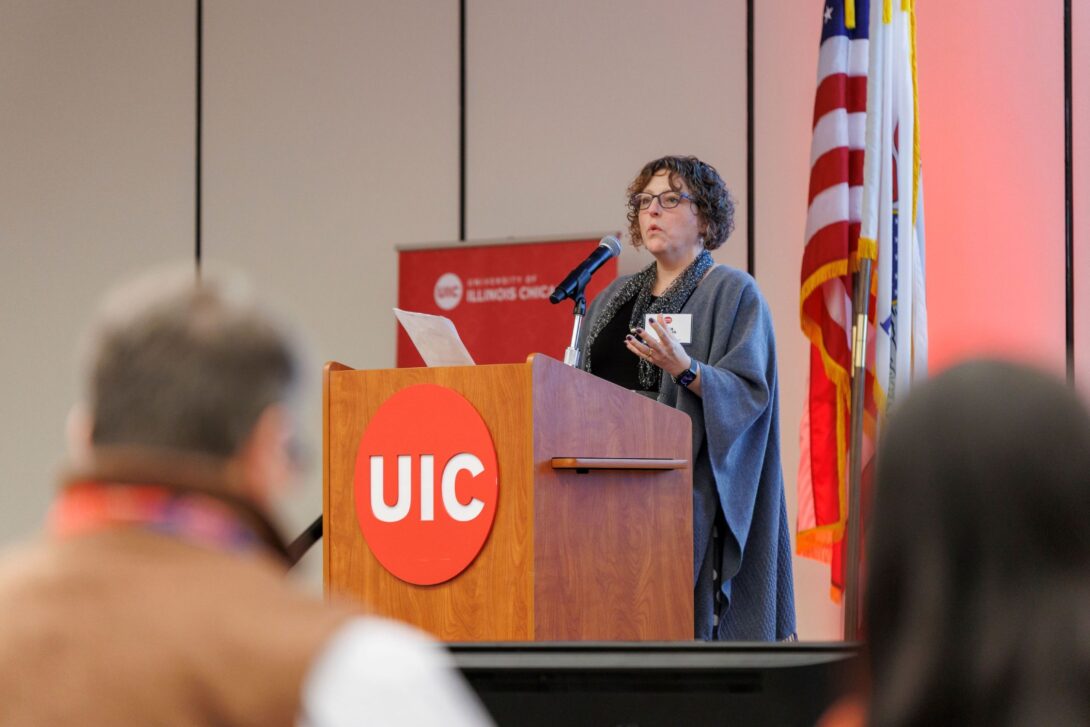Three Faculty Present at Bi-Annual SparkTalks Showcase

UIC SparkTalks
Three School of Public Health faculty members proudly represented the school at UIC SparkTalks – a biannual showcase of thoughts and solutions of influential UIC changemakers to inspire and create a better world.
Learn more about their presentations below:
Basmattee Boodram, MPH, PhD | Risky social spaces and network structures of young people who inject drugs

Hepatitis C virus is the most common blood-borne pathogen in the U.S. and incidence has been increasing for over a decade, a trend that has been linked to simultaneous increases in opioid and injection drug use. Sharing contaminated injection drug use syringes and other equipment is the primary mode of hepatitis C virus transmission in the U.S.
While there has been significant focus on the growing opioid epidemic in rural areas, few studies have included young suburban people who inject drugs; six of the existing studies were conducted by Boodram’s team. Boodram’s presentation underscored that social interactions and spatial contexts are important structural factors that are understudied, examining the role of social and geographic spaces in fostering risk behavior and social and risk network formation among young people who inject drugs.
Benjamin Shaw, PhD, MPH | A formative and participatory evaluation of the city of Chicago’s Health Equity Zones initiative

In Chicago, the average white person lives about 10 years longer than the average Black person. In the face of such large racial gaps in life expectancy, the Chicago Department of Public Health has been working closely with community partners to implement new health equity programs. These innovative programs are intended to address the underlying causes of race-based health inequities, with a particular focus on altering the power dynamics between city government and community-based organizations, and changing systems and structures within city government that may be barriers to health equity.
In 2022, the Chicago Department of Public Health began working with a team of scholars and students from the Division of Community Health Sciences at the UIC School of Public Health to conduct a formative process evaluating these initiatives. Shaw’s presentation described the current results of this evaluation, with an emphasis on our key findings related to the promise and challenges of the Healthy Chicago Equity Zones initiative.
Alisa Velonis, MPH, PHD | Moving beyond community-engaged classrooms

Increasingly, schools of public health are being encouraged to go beyond required practicums and integrate experiential educational activities into standard curricula. Most common approaches to course-based community engagement push student/partner meetings outside of the classroom and tend to prioritize the assignment parameters over the true needs of community partners.
Velonis’s presentation explored Collaborator-Partnered Teaching, a different method that exemplifies a new level of academic/community partnership, in which partners are incorporated in the class as co-teachers and co-learners. Velonis shared a pilot collaborator-partnered program evaluation class happening within the School of Public Health that centered power-sharing between academic and community-based organization partners. The partners received compensation, access to course materials and university NetIDs, and participated fully in all class activities. They served as co-teachers and co-learners, attending class sessions, preparing lessons, and working alongside students.
The course was made possible through the Community-Engaged Teaching and Learning Initiatives (CEnTL) (PI Jeni Hebert-Beirne), which provides financial and administrative support to SPH faculty to create learning environments grounded in liberatory pedagogy.